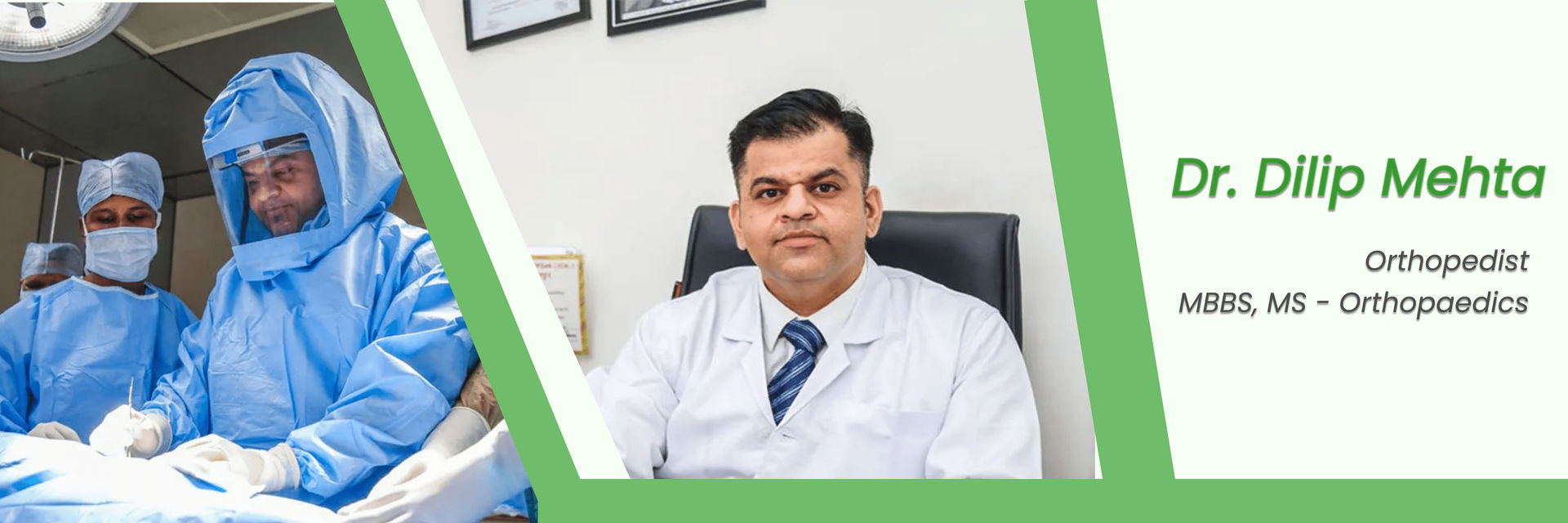Knee replacement surgery is common in India, with over 50,000 surgeries performed annually. As life expectancy rises and more people suffer from osteoarthritis, knee replacement becomes essential for restoring mobility and reducing pain. In particular, total knee replacement (TKR) is often recommended for patients with severe knee joint damage.
But what happens 8 weeks after knee replacement surgery?
This article explores the recovery process, expected outcomes, and common concerns.
According to the Indian Journal of Orthopaedics, around 90% of patients report significant pain relief within the first three months post-surgery. However, some might still experience pain, swelling, or discomfort after 8 weeks. If you’re in this situation, you’re not alone. Read on to learn more about your recovery progress and the steps you can take to improve mobility.
What to Expect After 8 Weeks of Knee Replacement Surgery?
Most patients experience significant mobility and pain reduction improvements by the eighth week. Here’s what you can typically expect:
- Increased Range of Motion: You should have regained 90 to 120 degrees of knee bend.
- Improved Walking Ability: Many patients can walk without assistance for short distances, although they may still require a cane for balance.
- Continued Physical Therapy: Exercises 8 weeks after knee replacement surgery are vital for strengthening muscles and improving joint function.
Why Does My Knee Still Hurt 8 Weeks After Surgery?
It’s normal to wonder why you’re still experiencing pain at this stage. Eight weeks after total knee replacement (TKR) surgery, most patients are well into their recovery, but pain can persist for several reasons:
- Inflammation: Even at eight weeks, your body is still healing, and inflammation can cause discomfort.
- Muscle Weakness: Post-operative exercises may not have yet strengthened your muscles, leading to continued pain.
- Scar Tissue Formation: Stiffness and pain can occur due to scar tissue development around the joint.
Consult your orthopedic surgeon if you notice a sharp increase in pain or if it interferes with your daily activities. Pain management at this stage should focus on improving mobility through physical therapy and appropriate medications.
Why is My Knee Still Swollen 8 Weeks After Knee Replacement?
Swelling at the 8-week mark is relatively common. Your knee joint is still adjusting to the artificial implant, and your body's healing process can cause prolonged swelling. Here are a few reasons why this might happen:
- Fluid Retention: Your body may retain fluid during the healing process.
- Inactivity: Not engaging in regular movement can worsen swelling.
- Overuse: On the other hand, too much too soon can cause swelling.
How to Manage Swelling:
- Elevate your leg while sitting.
- Apply ice packs to the knee.
- Follow your physiotherapist’s guidance on exercises to prevent overexertion.
If swelling is accompanied by redness, warmth, or fever, it could indicate an infection and immediate medical attention may be needed.
Total Knee Replacement Exercises 8 Weeks Post-Op
Exercise is a key component of recovery 8 weeks after knee replacement. Engaging in the right exercises can help restore function and strength. Here’s a list of recommended exercises:
- Straight Leg Raises: Strengthens the quadriceps without putting strain on the knee.
- Heel Slides: Improves knee flexion and reduces stiffness.
- Quad Sets: Helps strengthen the quadriceps muscle.
- Hamstring Curls: Aids in restoring knee flexibility and strength.
- Step-Ups: Enhances overall leg strength and coordination.
Important: Always consult your physiotherapist before starting new exercises to ensure they are appropriate for your condition.
The Science Behind the Recovery Process
Post-operative recovery from a knee replacement involves a mix of physical healing and mental adaptation. During the first few weeks, inflammation and tissue healing dominate the process. By the eighth week, your body’s healing focuses more on muscle strengthening and improving joint mobility.
According to studies published in the Indian Journal of Orthopaedics, patients who adhere to post-op exercises report better long-term outcomes. Continuous progress through physical therapy helps with scar tissue management, improves flexibility, and reduces the chances of stiffness.
When Do You Need Treatment After 8 Weeks of Knee Replacement?
1. Persistent Pain and Swelling
- Condition: If pain and swelling remain significant and do not improve with standard postoperative care, it might indicate an infection, malfunction of the prosthesis, or other complications.
- Intervention: Consult your orthopedic surgeon for evaluation. They may use imaging tests, such as X-rays or MRIs, to identify any underlying issues and recommend additional treatments or adjustments to your rehab plan.
2. Limited Range of Motion
- Condition: If you still have significant restrictions in knee movement despite physical therapy, it could be due to scar tissue formation (arthrofibrosis) or improper alignment of the prosthetic components.
- Intervention: Intensive physical therapy may be required, and in some cases, a procedure called manipulation under anesthesia (MUA) might be necessary to improve the range of motion.
3. Infections
- Condition: Signs of infection include redness, warmth, increased swelling, or discharge from the surgical site, often accompanied by fever or chills.
- Intervention: Seek immediate medical attention. Your surgeon might prescribe antibiotics or perform additional procedures to address the infection and prevent further complications.
4. Prosthetic Complications
- Condition: Symptoms such as unusual joint noises, mechanical instability, or persistent discomfort could indicate problems with the prosthesis.
- Intervention: Diagnostic imaging and clinical evaluations are needed to assess the prosthetic components. Depending on the findings, revision surgery or adjustments might be necessary.
5. Blood Clots
- Condition: Severe pain, swelling, and redness in the calf or thigh might suggest deep vein thrombosis (DVT), a serious complication.
- Intervention: Immediate medical evaluation and treatment are crucial. Treatment generally includes anticoagulant medications and further interventions may be required to manage the condition.
6. Emotional and Psychological Issues
- Condition: Persistent feelings of depression, anxiety, or dissatisfaction with recovery can affect overall well-being and adherence to your rehab program.
- Intervention: Psychological counselling or support groups might be helpful. Addressing mental health is an important part of your recovery process.
7. Complications from Other Health Conditions
- Condition: Pre-existing conditions like diabetes, obesity, or cardiovascular issues can impact your recovery and may need additional management.
- Intervention: Collaborate with other healthcare providers to manage these conditions and ensure they do not adversely affect your knee recovery.
8. Difficulty with Daily Activities
- Condition: If performing daily activities remains challenging despite following the rehab protocol, it may indicate a need for additional support or interventions.
- Intervention: Reassessment by your physical therapist or orthopedic surgeon can help tailor the rehab program to meet your needs better and address specific functional goals.
Overall, maintaining ongoing communication with your healthcare team is crucial. They can provide personalized guidance and interventions based on your situation and recovery progress.
FAQs
1. How Far Should I Be Able to Walk 8 Weeks After Knee Replacement?
By this stage, most patients can continuously walk for 10-15 minutes and may even manage longer distances with proper rest. You should gradually increase your walking time as part of your recovery plan.
2. Can You Travel 8 Weeks After Knee Replacement?
Travel is generally possible by this time, though long journeys may cause discomfort. Walk around and stretch your legs frequently to prevent blood clots during long trips.
3. Why Am I So Tired 8 Weeks After Knee Replacement Surgery?
Fatigue is common due to the body’s ongoing healing process. Lack of sleep due to discomfort or reduced activity levels can contribute to this. Gradually increasing your physical activity and ensuring proper rest will help reduce fatigue.






